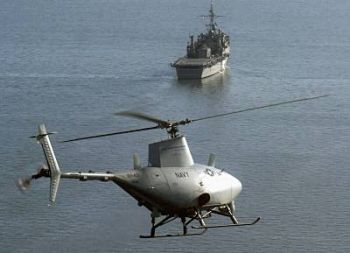BRUSSELS, Belgium, March 11, 2011 — Defense Secretary Robert M. Gates challenged a gathering of 48 NATO defense ministers here today to commit money and people, at what he called “a critical juncture for our mission in Afghanistan.”
“There will be harder and heavier fighting to come in the months ahead, and … many of the gains we have seen could be reversed if we do not remain fully committed to this effort,” the secretary said.
NATO defense ministers and those from other countries that contribute troops to the International Security Assistance Force in Afghanistan, along with Afghan Defense Minister Abdul Rahim Wardak, met to discuss the Joint Afghan-NATO Transition Board’s recommendations for the first areas where responsibility for security will transfer to Afghan forces.
Gates emphasized three main items: ISAF accomplishments over the past year; his concern progress could be threatened by uncoordinated national troop drawdowns; and how to plan for a deliberate transition to Afghan lead.
Since the 30,000-troop surge President Barack Obama announced in December 2009, additional forces have “allowed us to significantly expand, and move closer to linking, zones of security in the crucial south and east,” Gates said.
The Taliban control far less territory and have lost much of their ability to operate, he said, and “a semblance of normalcy is emerging for the Afghan people.”
Fierce fighting will come in the months ahead, Gates said, but “now, our forces will have home field advantage.”
That advantage will be threatened, the secretary cautioned, if ISAF nations don’t “maintain the unity and commitment … we expressed at Lisbon.”
“There is too much talk about leaving and not enough talk about getting the job done right,” he said.
Gates said he recognizes the intense pressure many nations face to reduce their ISAF contributions.
“We have all made extraordinary contributions to this effort, in the face of fiscal austerity and political pressure,” he said, noting the United States now has nearly 100,000 troops in Afghanistan and spends $120 billion a year on the war, while DOD seeks $12.8 billion for building the Afghan army and police.
Like many ISAF nations, the United States suffered more casualties last year than in any other year of the war, Gates said.
“To ensure that these sacrifices are not squandered, we need to keep our focus on succeeding in our missions, and not get pulled away prematurely,” he said.
Conditions are right to begin drawdown in July, Gates said, but it must be based on conditions and managed in full NATO coordination.
“We will not sacrifice the significant gains made to date, or the lives lost, for a political gesture,” the secretary said.
Gates endorsed the transition implementing principles presented at the session as offering “strategic reassurance to the Afghans and clear guidance for our forces.”
The principle of continuity ensures lead nations for regional commands, task forces and provincial leads remain accountable for success in their assigned areas throughout transition, he said.
“Another principle, reinvestment of forces, especially as trainers and mentors, would commit us to filling a significant shortfall that has hampered our efforts,” he said.
Enduring success can only come through building Afghan security forces, Gates said, challenging ISAF nations to provide $1 billion annually to the Afghan National Army Trust Fund.
Rule of law is a key area, the secretary said, noting a governance vacuum helped set conditions for Taliban dominance 20 years ago and remains a problem.
ISAF support to Afghan growth of basic government-provided dispute resolution in key areas, the secretary said, can help “foster the reintegration and reconciliation of former insurgents, and to combat corruption that undermines trust in the Afghan government.”
In that context, he fully supports the proposed NATO Rule of Law Field Support Mission ISAF coalition nations are considering, he said.
The mission would combine liaison and security support to Afghan and international civilian experts in dispute resolution, Gates said, adding, “If we don’t win here, the Taliban will.”
Gates asked ministers to “abide by the principle of ‘in together, out together.’ ”
“Resist the urge to do what is politically expedient, and have the courage of patience,” he concluded.
Source:
U.S. Department of Defense
Office of the Assistant Secretary of Defense (Public Affairs)

 von
von 